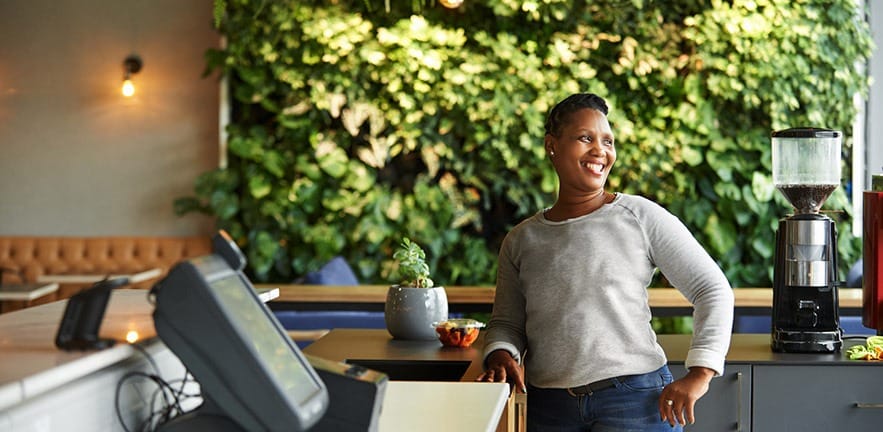In addition to generating money, entrepreneurial activity by women in the developing world can build confidence and change broader societal attitudes, says Dr Helen Haugh of Cambridge Judge Business School.

Entrepreneurial activity can provide a greater sense of freedom to people all over the world. But for women in developing countries, “emancipatory” entrepreneurship is especially important to help change wider societal attitudes, says Dr Helen Haugh, Senior Lecturer in Community Enterprise at Cambridge Judge Business School.
In a study published in the Journal of Business Ethics – entitled “Linking Entrepreneurship and Social Change: The Mediating Role of Empowerment” – Helen and Alka Talwar develop a model of “emancipatory social entrepreneurship” based on “processes which empower women and contribute to changing the social order in which they are embedded”.
Such activities are often embedded in programmes run by local as well as international NGOs, such as Oxfam, and have a two-fold effect: they enable women to develop ways of generating income for their household, and by doing so they aim to change traditional attitudes that might be keeping those women from benefiting the most from their earning potential.
Empowerment is about controlling resources, says Helen. “In developing countries, many women have few rights over resources. Many do work – they do the dirty, dangerous jobs and earn money from them – but that money is often handed over to a male member of the family. While they might be earning, they have little to no control over what they earn.”
And empowerment is also bound up with decision-making and having more power over life choices. Helen’s study followed what happened to women who participated in Mahaul, a female entrepreneurship programme delivered by a local NGO in Gujarat, who were able to not just earn money but keep it for themselves. 61 per cent of the sample reported that they decided where their earnings would be spent, not their husbands or families.
“For example, female attendance at school drops off after the age of 10 or 11 in many societies,” says Helen. “If women have control over their own money, they can decide that actually they want their girls to go to school and also to stay on at school. Or they can decide to send them to a better school where they will have a better education. That begins the process of changing their daughters’ life pathways.” As one participant said: “It will be easier for my daughters to do things that I was not able to do.”
The skills women develop around running a successful business can also spark further change. If they are learning how to create a business, to fix a price and how to sell, they will need to interact with other women outside their family. Consequently, they develop a wide and supportive social network. “Take that up the value chain and wealth is being created within a community,” says Helen. “The process leads to a virtuous cycle of development.”
Entrepreneurship programmes for women seek to harness existing skills to create these opportunities for resource control and decision-making. Mahaul uses the women’s traditional skills in sewing, for example. “Many women in traditional societies have skills, particularly domestic skills, such as cooking, baking, and sewing,” Helen points out. “If they’re in a cattle-owning community they often have responsibility for making products from the dairy.”
Of course, these programmes are replete with challenges. “The returns are much slower to realise: if donors or social investors are looking for quick fixes they don’t tend to come so quickly in entrepreneurship development programmes,” says Helen. Access to education in order to develop basic literacy and numeracy skills can be difficult, as can access to electricity and the Internet. Entrepreneurship development models that work will build in these skills, along with confidence building: many women have led very home-bound lives, and are not used to making their own decisions.
Helen cites numerous examples of organisations which have created this blend of skills along with grassroots cultural sensitivity: Oxfam’s work with women in Lebanon and Bangladesh, Camfed (Campaign for Female Education) which seeks to empower young women across Africa through education, and the Cherie Blair Foundation’s Enterprise Development Programme.
As existing aid programmes build future success, new challenges emerge. Helen points to the 65 million people displaced as a result of conflicts in Syria, Yemen and Sudan. Displacement is likely to affect women more than men, she speculates: during migration, family connections are disrupted and sometimes women’s movements can become even more restricted as men seek to increase their “protection” of them.
Then there are empowerment issues for women in transitioning economies such as the former Russian Federation, China and Vietnam. These economies are moving from being dependent on the state to becoming more entrepreneurial, so there’s a real opportunity to raise awareness of female entrepreneurship in transitioning economies to ensure that women aren’t left out in the development of market-based systems.
“There will always be a need for international aid,” Helen says. “What is important is how to use that aid more creatively – so that when the aid runs out or is reduced, something sustainable is left in its place. Entrepreneurship can change not just the way that women see themselves but also how the wider community sees women.”

